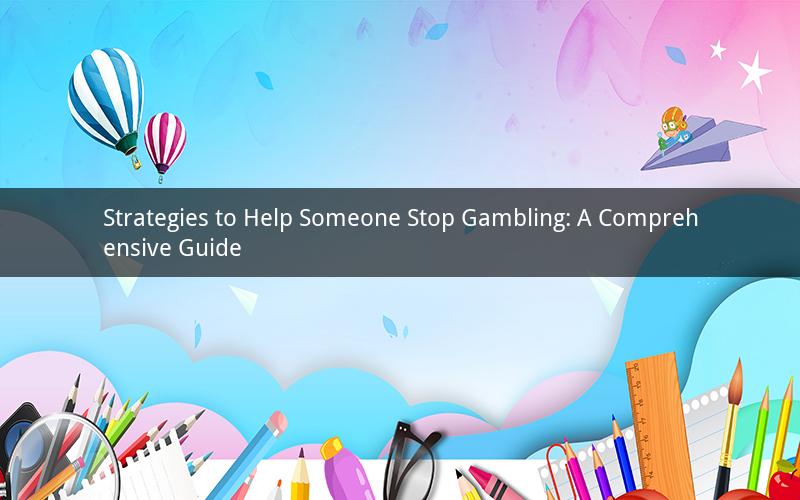
Gambling has become a prevalent issue affecting individuals across the globe. Whether it's due to financial problems, emotional distress, or social consequences, helping someone stop gambling is a crucial step towards a healthier life. This guide will delve into various strategies and techniques to assist individuals in overcoming their gambling addiction.
1. Understand the Problem
The first step in helping someone stop gambling is to recognize the severity of the problem. Acknowledge that gambling is an addiction, and it requires a strong commitment to change. Familiarize yourself with the signs and symptoms of gambling addiction, such as:
- Preoccupation with gambling
- Inability to control gambling behavior
- Lying to hide gambling activities
- Neglecting responsibilities due to gambling
- Financial, emotional, or social consequences
2. Encourage Professional Help
Seeking professional help is crucial in overcoming a gambling addiction. Encourage the individual to consult with a therapist or counselor specializing in addiction. Therapy can provide personalized strategies to cope with cravings, address underlying issues, and develop healthier habits.
3. Create a Support System
A strong support system is essential in helping someone stop gambling. Encourage the individual to surround themselves with friends, family, or support groups who are understanding and supportive. Consider the following support options:
- Gamblers Anonymous: A 12-step program for individuals struggling with gambling addiction
- Family Therapy: To help the individual and their loved ones navigate the challenges of addiction
- Support Groups: Online or in-person groups where individuals can share experiences and support each other
4. Develop a Relapse Prevention Plan
Relapse is a common challenge in overcoming addiction. Help the individual create a relapse prevention plan that outlines strategies to avoid triggers and cope with cravings. The plan may include:
- Identifying high-risk situations and avoiding them
- Establishing healthy coping mechanisms for stress and anxiety
- Developing a daily routine to replace gambling activities
- Monitoring progress and adjusting the plan as needed
5. Encourage Financial Responsibility
Gambling addiction often leads to financial turmoil. Encourage the individual to take responsibility for their financial situation and seek help if necessary. Consider the following steps:
- Set a budget and stick to it
- Pay off debts and avoid taking on new ones
- Seek financial counseling to address underlying issues
- Develop a savings plan for the future
6. Foster Self-Care and Well-being
Promote self-care and well-being as a crucial component of overcoming gambling addiction. Encourage the individual to engage in activities that promote mental, emotional, and physical health, such as:
- Regular exercise
- A balanced diet
- Adequate sleep
- Mindfulness and relaxation techniques
- Hobbies and interests
7. Monitor Progress and Celebrate Success
Regularly monitor the individual's progress in overcoming their gambling addiction. Celebrate small victories and milestones to maintain motivation and reinforce positive behavior changes.
8. Be Patient and Understanding
Overcoming a gambling addiction is a long and challenging process. Be patient and understanding throughout the journey. Encourage the individual to seek support when needed and remind them that recovery is possible.
Frequently Asked Questions:
1. How long does it take to overcome a gambling addiction?
Answer: The duration of recovery varies for each individual, but it can take several months to years. The key is to be patient and persistent in the journey towards recovery.
2. Can therapy alone help someone stop gambling?
Answer: While therapy can be a significant component of recovery, it's often most effective when combined with other strategies, such as support groups, financial counseling, and self-care practices.
3. Is it possible for someone to gamble responsibly?
Answer: For individuals with a gambling addiction, it is generally not possible to gamble responsibly. Overcoming addiction requires a commitment to change and avoiding triggers.
4. Can family members be held responsible for someone's gambling addiction?
Answer: Family members cannot be held responsible for someone's gambling addiction. However, they can play a vital role in supporting the individual through the recovery process.
5. What can I do if I'm concerned about a loved one's gambling habits?
Answer: If you're concerned about a loved one's gambling habits, it's essential to express your concerns in a non-confrontational manner. Encourage them to seek professional help and offer your support throughout their journey towards recovery.